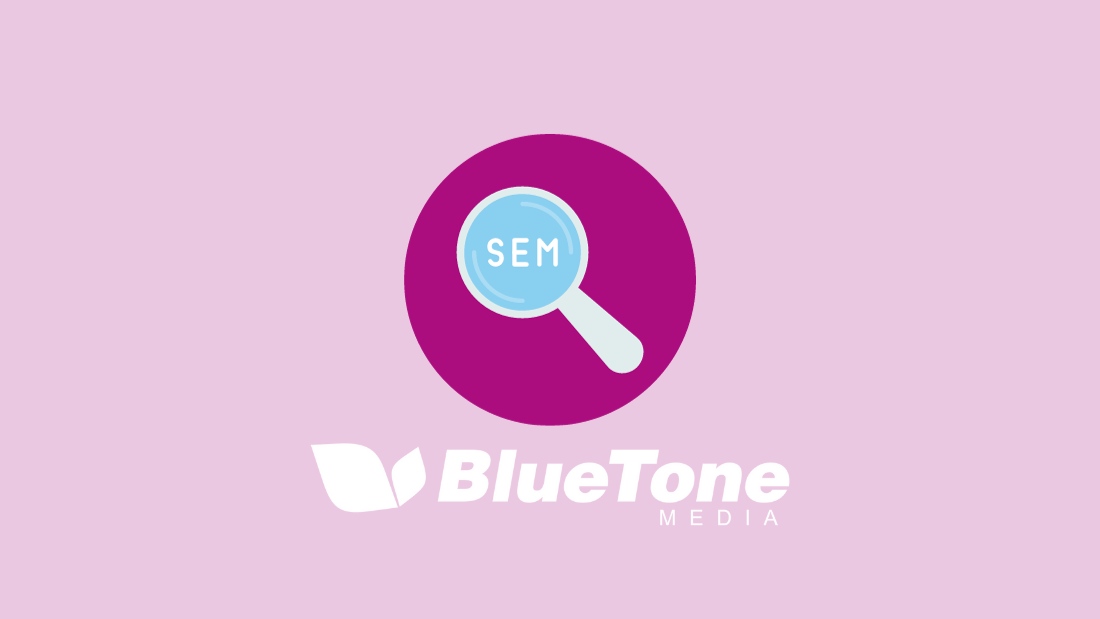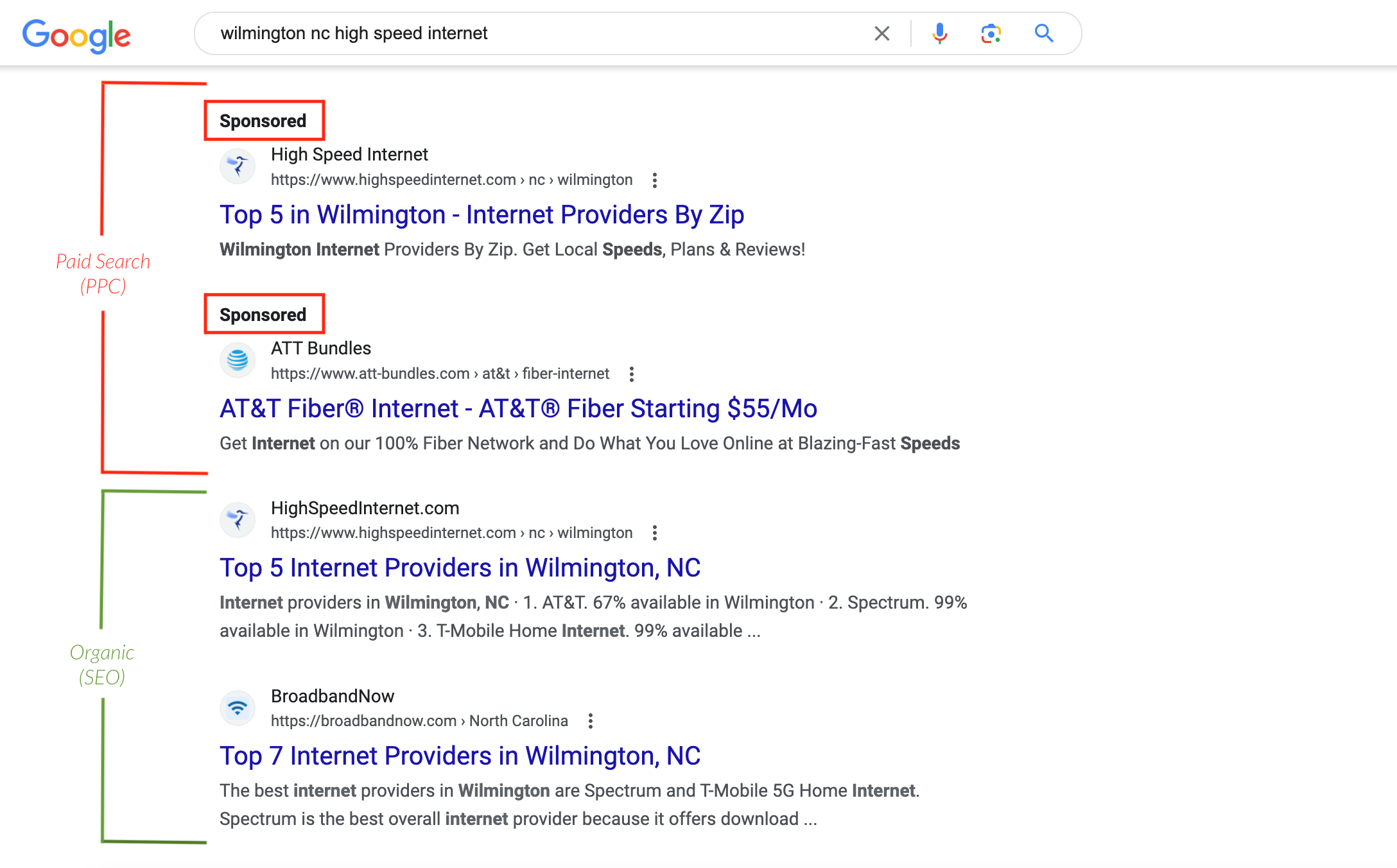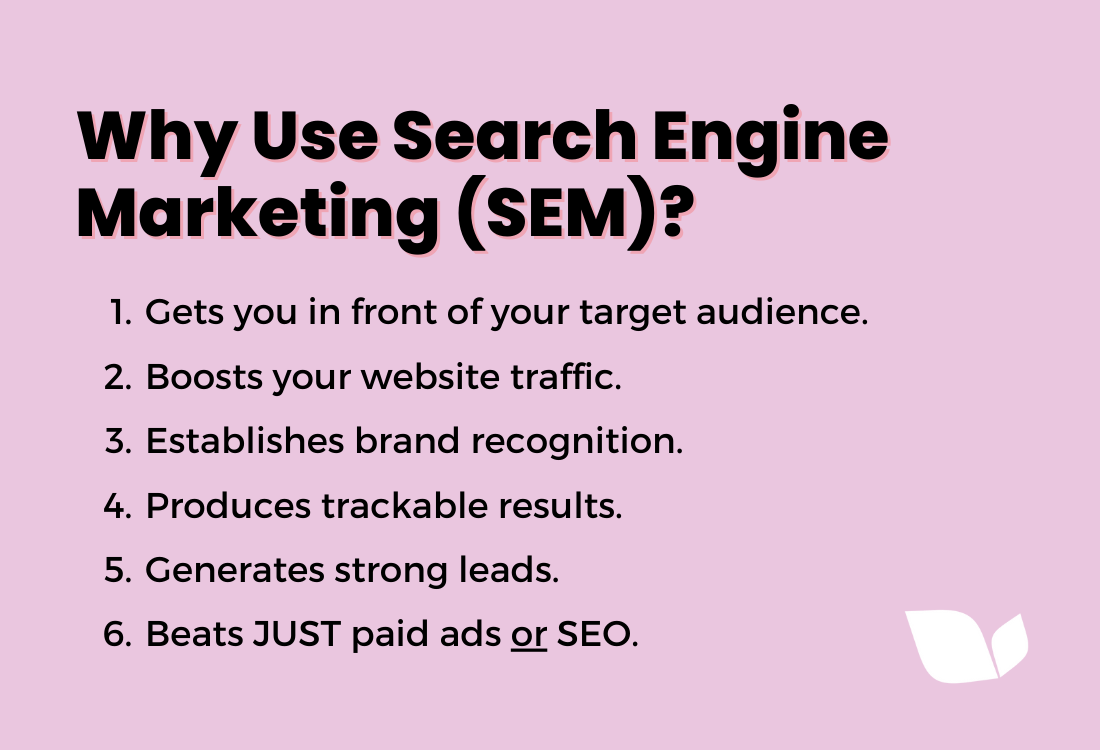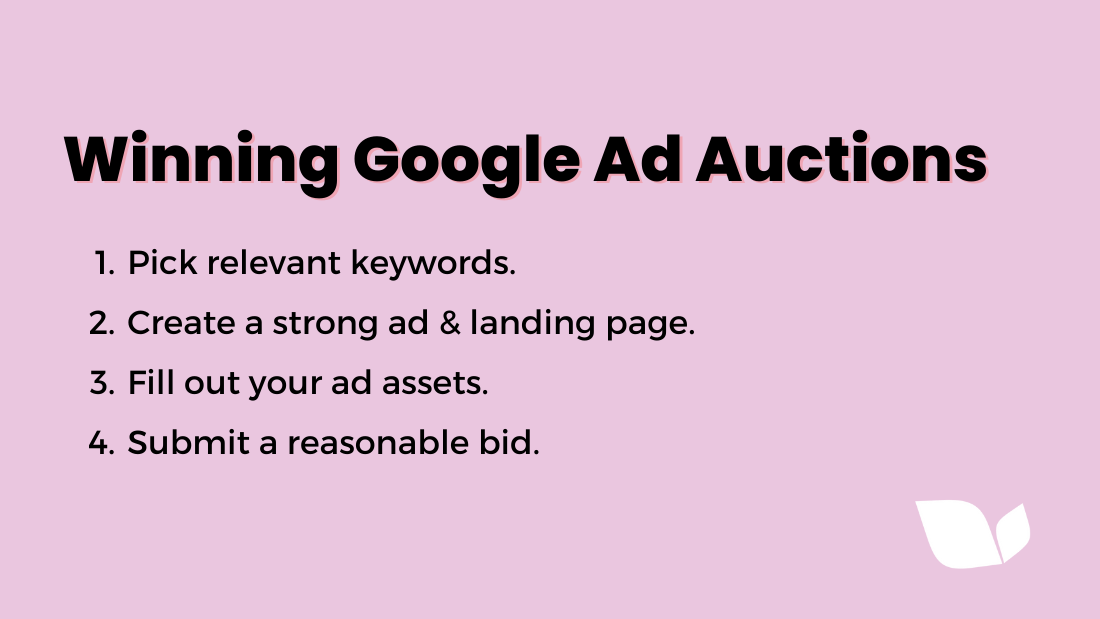What is SEM? – A Search Engine Marketing Guide

What is SEM?
Search Engine Marketing (SEM) is a strategy digital marketers use to increase their website’s position on the Search Engine Results Page (SERP).
SEM is an umbrella term that combines two different marketing techniques:
-
Pay-Per-Click (or paid search advertising)
Both methods increase your search ranking and gain more exposure for your website. The main difference is in the price. While you pay for results with paid search (as the name suggests), you earn results organically – generally at a slower rate – with SEO.

Is SEM the same as paid search?
Not quite.
Although paid search is just one part of SEM, the terms are often used interchangeably. A lot of times, when talking about SEM, marketers are specifically referring to the practice of buying ad space at the top of search results.
How are SEM & SEO different?
By definition, SEM and SEO sound much the same. But, as mentioned above, SEO is just one component of search engine marketing. The difference is in the “how.”
Let’s take the definition of SEM from above…
SEM is a strategy digital marketers use to increase their website’s position on the SERP.
Now, if we were trying to define SEO, we would change it to…
SEO is a strategy digital marketers use to increase their website’s position on the SERP organically by filling your website with relevant, well-structured content.

The benefits of SEM
There are several reasons this dream-team duo of search engine marketing methods is worth your time and resources.
1. It gets your name and website in front of your target audience.
Visibility is the name of the game. Potential customers won’t be able to find you unless you show up in search results. A well-executed SEM strategy will place you in front of the right people at the right time.
2. You’ll see a difference in your website traffic.
The entire purpose of SEO and PPC is to get people to click on your website, where they will ideally make a purchase or request service. And when you optimize your ads, meta tags, and website content effectively, these are the kind of results you can expect.
3. It boosts your brand recognition.
Even if users don’t click on your website URL, just popping up in search results can earn your brand some major credibility. The next time the same user comes across your company name, they’ll be more likely to click and see what you have to offer.
4. It drives trackable results.
In marketing, data is your best friend. When it comes to SEM, you can collect and analyze a powerful amount of data about your ad impressions, website traffic, click-through rate (CTR), and more! And with analytics and keyword tools like SEMRush or Google Keyword Planner, experimenting with new techniques and optimizing your ads is a breeze.
5. It attracts more qualified leads.
The audience targeting potential of SEM is astounding, particularly for paid search ads. You can pick and choose who will see your paid search ads based on location, demographics, online behaviors, and interests. That way, you’ll capture the leads who are most likely to convert.
6. It’s more effective than just SEO or PPC.
We’re often asked which is the better tactic: SEO or PPC? Frankly, they both have their pros and cons. SEO is a reliable, long-term brand development strategy, while paid search ads offer more instant results. But they hands-down, 100% work best when used in tandem.

How to win an ad auction
Bidding on ad space is a big part of the PPC component of SEM. If you’re new to SEM or paid search, you’ll need to learn a thing or two about Google ad auctions.
Say, you’ve created a search ad that you want to appear at the top of the SERP when users search for “high speed internet wilmington, nc.” Odds are, there are other Wilmington internet providers who also want that prime search engine real estate.
How do you convince Google to place YOUR ad in the top spot on the SERP?
You need to win an ad auction!
Want to create a winning ad? Here’s what you need to do:
1. Choose the right keywords.
Picking the keywords to bid on is half the battle.
Do plenty of keyword research. Make sure your keywords are relevant and useful to your target audience.
Some of the most obvious keywords may have higher volumes (i.e. a lot of people search for those terms). As a result, those words will be more competitive, and it will be harder – and more expensive – for you to win the ad auction.
If your ad budget is small, you’ll be happier bidding on keywords with clear buying intent (as opposed to informational intent).
2. Create a high-quality ad and landing page.
Your keywords aren’t the only things that need to be relevant and useful. Google also takes into account the quality of your ad and the web page your ad sends them to.
Here’s a basic example…
Say you choose the keyphrase “high speed internet.” If your ad is for an affordable phone plan, Google won’t consider your ad very “high quality” because the keyword and ad copy don’t match.
Figure out what your target audience is searching for. Then, tailor your landing page content and ad title and description to those findings. It’s on you to write an ad that will engage your audience (and thus, likely to be granted Google ad space).
3. Take advantage of ad assets.
Google ad assets (or ad extensions) are low-hanging fruit that can give you an edge over your competitors. To increase your chances of winning an ad auction, make sure you’ve filled out as many assets as possible. These include things like location details, app links, call buttons, lead forms, and images.
4. Bid an appropriate amount.
Just like any other kind of auction, the highest bid wins. So, if there are multiple businesses who have quality ads and landing pages, Google will give the space to the business with the biggest ad budget. This is where it gets a little risky. But if you’re smart with your keywords and create an engaging ad, your results should be worth the cost.
Want more SEM tips? These 5 SEM techniques will give your marketing efforts a much-needed boost!
BlueTone Media | SEM Managers
Need some SEM help? Contact us today for a FREE initial consultation. Let our marketing team handle your SEO and PPC needs so YOU can focus on running an amazing business!
Related Posts:
- Understanding Google’s Local Pack: How to Get Featured
- Google Business Profile FAQs: Everything You Need to Know
- The Best Google Ads Extensions to Boost Your Click-Through Rates
- How to Leverage Facebook Groups for Local Business Leads
- How to Use AI to Write Better Social Media Captions
- How to Optimize Google Reviews to Attract More Customers
- LinkedIn for B2B Marketing Success
- How to Conduct a Social Media Audit (w/ "Audit Readiness" Quiz!)
- Creating a Content Calendar for Consistent Posting
- The Importance of Mobile Optimization in 2024
- Data Privacy Regulations: What Marketers Need to Know
- The Role of Chatbots in Enhancing Customer Service
- SEO for Small Business: The Ultimate Guide to Getting Found Online
- The Role of Keyword Clustering in Modern SEO

